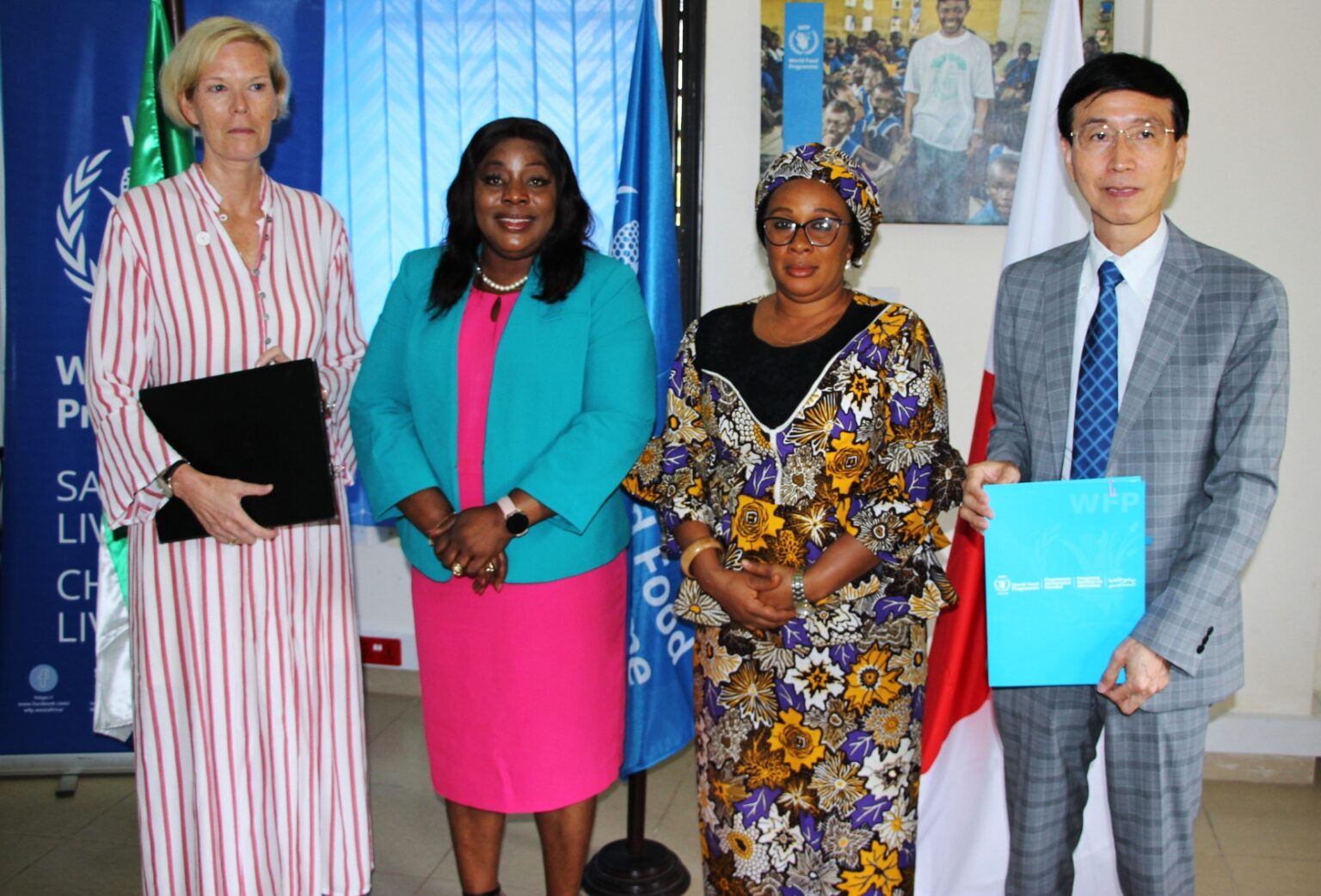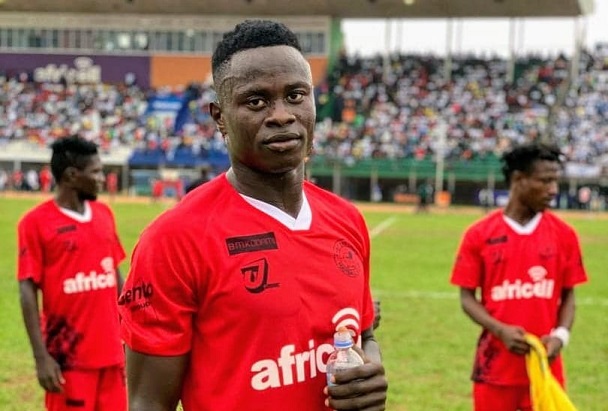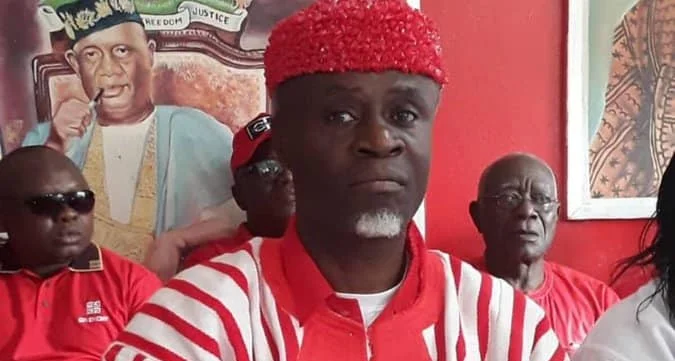The United Nations World Food Programme (WFP) on Monday 8 August 2022 received a contribution of JPY 200 million (USD 1.49 million) from the Government of Japan to implement the school feeding programme in support of the national Free Quality Education initiative of the Government of Sierra Leone.Speaking at the grant signing ceremony in Freetown, WFP’s Country Director a.i, in Sierra Leone, Yvonne Forsen said that school feeding is a powerful support to achieving educational goals of enrollment, attendance and retention and that WFP was happy to team up with Japan to support the Government to achieve these goals, adding that WFP was grateful to the people of Japan for their long-standing contributions to education for the last decade.
This project will target some 42,000 primary school children attending grades 1-6 in 139 Government and Government-assisted schools in the most food insecure and vulnerable chiefdoms of Pujehun and Kambia districts for the 2023/2024 academic year.
This contribution from Japan will, in part, allow for the purchase of rice from local farmers that will pave the way for home-grown school feeding. This means that the food for the school meals is sourced from smallholder farmers within the community, thus providing a sustainable market for smallholder farmers, and contributing to the local economy.
“This is what partnerships are about – strengthening systems to promote sustainable development. Through school feeding, we are committed to building human capital to improve the lives of Sierra Leoneans in the long term,” said Mrs Mamusu P. Massaquoi, Deputy Minister II of Basic and Senior Secondary Education. “We are grateful for the resources from Japan which are a means to drive the agenda of the Government.” she added.
The Japanese Ambassador to the Republic of Sierra Leone, H.E. Mr. Mochizuki Hisanobu, on his part expressed his joy on behalf of the people and Government of Japan to support both the school feeding programme and the project for strengthening the agricultural value chain, saying that “the two projects will offer a sustainable way for the Government of Sierra Leone to address food security challenges during the current crisis.” He also stressed that WFP and Japan “can achieve a lot of success in the areas of cooperation in food security, agricultural development and other important areas of interest in Sierra Leone.”
The Ambassador also used this occasion to officially launch a new project worth JPY502 million (USD 3.856 million) for strengthening the agricultural value-chain that will support 8,100 smallholder farming households in Kambia, Koinadugu, Tonkolili, Moyamba, Kenema and Pujehun districts to:
- Increase their capacities in processing, management and marketing of their agricultural produce.
- Improve and conserve soil quality of Inland Valley Swamps.
- Increase production and income from vegetable production by piloting solar powered irrigation and cold storage facilities.
- Strengthen the capacities of smallholder farmers through trainings in Technical Package for Rice Production, Post-harvest management, Nutrition-Sensitive Agriculture, FBO governance and financial literacy and Compost making.
Speaking on behalf of the Ministry of Agriculture, Deputy Minister Dr. Theresa Tenneh Dick said that Government particularly noted with pleasure WFP’s partnership with two Japanese companies to provide rice processing machines and hybrid solar-powered walk-in cold rooms and solar-powered, drip irrigation to boost production.
“A project that gives priority to strengthening agricultural value chain based on their potential profitability and accessibility to poor farm families, women and young people is something the Government of Sierra Leone will continue to welcome,” she added.













